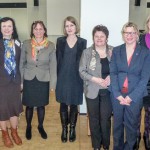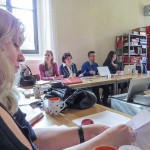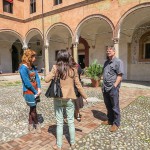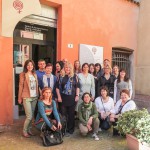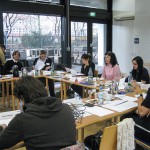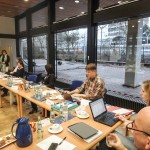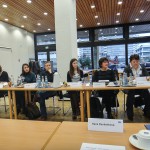Benefits of Lifelong Learning (pdf)
PRESS RELEASES/ NEWS
- http://pobs.cc/yq3yhttp://www.medicalnewstoday.com/releases/278405.php and also in http://cradall.org/content/self-motivated-participation-learning-activities-increases-well-being-adults
- http://uil.unesco.org/home/news-target/wider-benefits-of-lifelong-learning/21bac3956b7503860c18f8bff906561f/, UNESCO Institute for Lifelong Learning (UIL)
- http://www.bell-project.eu/cms/wp-content/uploads/2014/06/DIE-Zeitschrift-II-2014_BELL.pdf, DIE Zeitschrift für Erwachsenenbildung, H. 2/2014, S. 18, www.diezeitschrift.de
- http://www.bildungsspiegel.de/bildungsnews/news/2221-so-wichtig-ist-weiterbildung-wirklich.html and also in http://www.donau-uni.ac.at/de/aktuell/news/archiv/20709/index.php as well as in http://www.iwwb.de/weiterbildung.html?kat=meldungen&num=1098
- http://www.noen.at/news/bildung/Monika-Kil-zum-Tag-der-Weiterbildung;art251,467644
- http://www.eucis-lll.eu/news/members-partners/eaea-bell-policy-debate-focusing-on-the-wider-benefits-of-adult-education/
- http://www.eaea.org/en/home/news/bell-results-verify-the-benefits-of-adult-learning.html
- http://www.donau-uni.ac.at/de/aktuell/presse/archiv/20703/index.php
LIBRARY
BOOKS AND ARTICLES ON THE SUBJECT
- Brasset-Grundy, A. (2004). Family life and learning. Emergent themes. In: T. Schuller, J. Preston, C. Hammond, A. Brasset-Grundy & J. Bynner (Eds.): The benefits of learning. The impact of education on health, family life and social capital. London and New York: Routledge Falmer, p. 80-98.
- Feinstein, L., Budge, D., Vorhaus, J. & Duckworth, K. (2008). The social and personal benefits of learning: A summary of key research findings. London: Centre for Research on the Wider Benefits of Learning.
- Fleige, M. (2011). Kulturen der Nutzenpositionierung. Durch Wissen zu veränderten Lernentscheidungen. Report, 34 (3), pp. 72-81.
- Fleige, M. (2013). ‘Nutzen’ religiöser Erwachsenenbildung aus erwachsenenpädagogischer Perspektive. Erwachsenenpädagogische Reflexionen und Hypothesen. In: Rösener, A. (2013) (Ed.). Was bringt uns das? Vom Nutzen religiöser Bildung für Individuum, Kirche und Gesellschaft. Münster et. al., pp. 35-52.
- Hammond, C. (2004). The impacts of learning on well-being, mental health and effective coping. In: T. Schuller, J. Preston, C. Hammond, A. Brasset-Grundy & J. Bynner (Eds.): The benefits of learning. The impact of education on health, family life and social capital. London and New York: Routledge Falmer, p. 37-56.
- Kil, M./Motschilnig, R./Thöne-Geyer, B. (2012): Was kann Erwachsenenbildung leisten? Die Benefits von Erwachsenenbildung – Ansatz, Erfassung und Perspektiven/What Can Adult Education Accomplish? The Benefits of Adult Learning – The Approach, Measurement and Prospects. In: Der Pädagogische Blick – Zeitschrift für Wissenschaft und Praxis in pädagogischen Berufen, 20., Jg., H3, S. 164-175. Online link http://www.die-bonn.de/Weiterbildung/Literaturrecherche/details.aspx?ID=10988
- Manninen, J. (2009). Wider benefits of learning in liberal adult education. Paper presentation for Third Nordic Conference on Adult Learning, 22 – 24 April 2009, Odense, Denmark.
- Manninen, J. (2010). Wider Benefits of Learning within Liberal Adult Education System in Finland. Communication, collaboration and creativity, 17-35
- Manninen, J. 2012. Liberal Adult Education as Civic Capacity Builder? Lifelong Learning in Europe, 1/2012, 69-78. http://www.lline.fi/files/issues/1_2012.pdf
- Motschilnig, R., (2012). Wider Benefits of Adult Learning – An Inventory of Existing Studies and Research: DVV international, BMZ, Vol. 78. 79-88.
- Preston, J. (2004). A continuous effort of sociability. Learning and social capital in adult life. In: T. Schuller, J. Preston, C. Hammond, A. Brasset-Grundy & J. Bynner (Eds.): The benefits of learning. The impact of education on health, family life and social capital. London and New York: Routledge Falmer, (119-136).
- Nancy Merz Nordstrom and Jon F. Merz (Aug 22, 2006) – “Learning Later, Living Greater: The Secret for Making the Most of Your After-50 Years”, Sentient Publications.
- Department for business innovation skills – Community Learning Learner Survey report https://www.gov.uk/government/uploads/system/uploads/attachment_data/file/128775/13-691-community-learning-learner-survey-march-2013.pdf
- NIACE – Older People’s Learning in 2012: A Survey’ http://www.agenda-efa.org.uk/site/2013/01/niace-survey-examines-the-benefits-of-learning-in-later-life/
- Kil, M., Operti, F. & Manninen, J. 2012. Measuring benefits of lifelong learning. Lifelong Learning in Europe, Volume 17, p. 4-5.
- Manninen, J. & Luukannel, S. 2008. Omaehtoisen aikuisopiskelun vaikutukset. Vapaan sivistystyön opintojen merkitys ja vaikutukset aikuisten elämässä. Helsinki: VSY. http://www.vsy.fi/doc/Raportti_Vaikutukset.pdf
- Manninen, J. 2012. Liberal Adult Education as Civic Capacity Builder? Lifelong Learning in Europe, 1/2012, 69-78. http://www.lline.fi/files/issues/1_2012.pdf
- Manninen, J. 2011. Wider benefits of learning in liberal adult education. Dialog Theme issue: The Nordic Region in the World. Helsinki: Nordic Network for Adult Learning NVL. 6-7. http://www.nordvux.net/download/6716/dialog_2011_english.pdf
- Manninen, J. 2013. »Wider Benefits« der freien Erwachsenenbildung. Ergebnisse aus Finnland. DIE Zeitschrift für Erwachsenenbildung 1/2013.
INSTITUTIONAL RESOURCES
- “Education and Training 2020” (ET 2020) – http://europa.eu/legislation_summaries/education_training_youth/general_framework/ef0016_en.htm
- Communication from the European Commission, Adult learning: It is never too late to learn (2006) – http://eur-lex.europa.eu/LexUriServ/LexUriServ.do?uri=COM:2006:0614:FIN:EN:PDF
- Communication from the European Commission, Adult learning: It is always a good time to learn (2007) – http://eur-lex.europa.eu/LexUriServ/LexUriServ.do?uri=Com:2007:0558:FIN:EN:PDF
- Parliament resolution “It is never too late to learn” (2008) – http://eur-lex.europa.eu/LexUriServ/LexUriServ.do?uri=OJ:C:2009:041E:0046:0052:EN:PDF
- Council conclusions on adult learning, which established an Action Plan on Adult Learning for the period 2008-2010 (2008) – http://eur-lex.europa.eu/LexUriServ/LexUriServ.do?uri=OJ:C:2008:140:0010:0013:EN:PDF
- Council Resolution on a renewed European agenda for adult learning (2011) – http://eur-lex.europa.eu/LexUriServ/LexUriServ.do?uri=OJ:C:2011:372:0001:0006:EN:PDF
- OECD/CERI (2007). Understanding the social outcomes of learning. Paris – http://www.oecd.org/edu/ceri/understandingthesocialoutcomesoflearning.htm
- European Commission (2001). Making a European area of lifelong learning a reality. Brussels: EU Commission – http://eur-lex.europa.eu/LexUriServ/LexUriServ.do?uri=COM:2001:0678:FIN:EN:PDF
USEFUL LINKS
European Commission – Education and Culture (EAC)
http://ec.europa.eu/dgs/education_culture/index_en.htm
EU actions in education and training aim to improve the quality of learning systems and provide greater opportunities for people at all stages of their lives.
Adult learning
http://ec.europa.eu/education/lifelong-learning-policy/adult_en.htm The dedicated section on adult learning of the EC website.
Education, Audiovisual and Culture Executive Agency (EACEA)
The Education, Audiovisual and Culture Executive Agency (EACEA) is responsible for the management of certain parts of the EU’s programmes in the fields of education, culture and audiovisual.
UNESCO INSTITUTE FOR LIFELONG LEARNING
http://www.uil.unesco.org/home/ The UNESCO Institute for Lifelong Learning (UIL) is a non-profit, policy-driven, international research, training, information, documentation and publishing centre of UNESCO. One of six educational institutes of UNESCO, UIL promotes lifelong learning policy and practice with a focus on adult learning and education, especially literacy and non-formal education and alternative learning opportunities for marginalized and disadvantaged groups.
ICAE – International council for adult education
The International Council for Adult Education (ICAE) is a global network created in 1973, composed of non-governmental organizations, regional, national and sectoral networks in more than 75 countries. http://www.icae2.org/?q=en/publications
Organisation for Economic Co-operation and Development Education Directorate → PIAAC
OECD
Council of Europe – Education – COE
The Council of Europe presents an Education programme centred on the overarching principles and priorities of the Council of Europe which draws on a variety of traditional as well as newer mechanisms and working methods in making our vision of education an operational reality.
PASCAL International Observatory
http://pascalobservatory.org/themes/policy-themes/lifelong-learning
EURYDICE
The Eurydice Network provides information on and analyses of European education systems and policies. http://eacea.ec.europa.eu/education/eurydice/index_en.php
CONFITEA
http://www.unesco.org/en/confinteavi/national-reports/europe-and-north-america/ Centre for Research on Lifelong Learning based on Indicators and Benchmarks (CRELL) – http://crell.jrc.ec.europa.eu/
Networks of Researchers
- EENEE (Network of European Experts on Economics of Education)
- NESET (Network of Experts on Social aspects of Education and Training)
- NESSE (Network of experts in Social Sciences of Education and Training)
Journals:
Photos:

